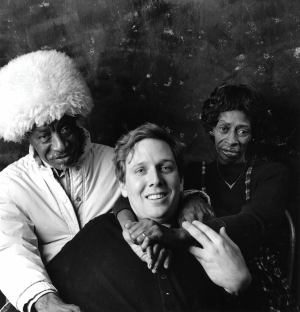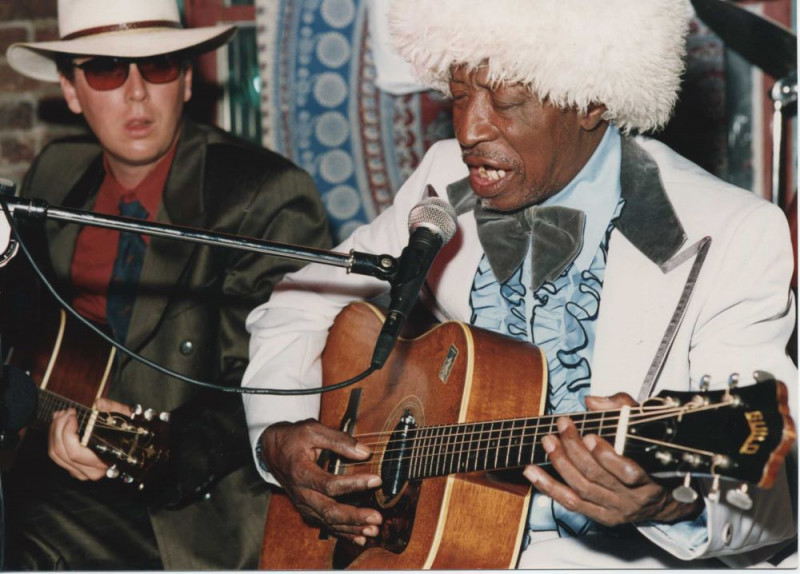Oct 16, 2024
Discover How Meeting Groups Can Give Back When Convening in North Carolina's Piedmont

North Carolina’s Piedmont—situated between the Atlantic Coastal Plain and the Appalachian Mountains—is one of the fastest-growing regions in the U.S., with housing developments, manufacturing and technology companies setting up shop in a state that has become a beacon for relocation.
Meetings and conventions are also bringing people to the Piedmont, where the northern part of the region includes the citywide favorite Raleigh—home of the Raleigh Convention Center and with a downtown primed for events (and a new Omni headquarters hotel on the way); quirky Durham, where the decidedly artistic residents of Bull City gave the city the motto “Keep Durham Strange”; Orange County, home of major college town Chapel Hill and historic Hillsborough; and Greensboro, located on the west side of the Piedmont and perhaps growing the fastest of all.
Along with their popularity in attracting transplants and groups, the area has a reputation for helping its own, and meetings and conventions groups can get in on the act.
Following are some corporate social responsibility (CSR) opportunities available in the major cities of the Piedmont’s Triangle and Triad regions, along with highlights of their meetings and events offerings.
[Related: North Carolina’s Diverse Event Venues Showcase a State on the Move]
Hillsborough/Chapel Hill

The quaint colonial town of Hillsborough (founded in 1754 and currently with a population just under 10,000) is located about 15 miles north of Chapel Hill, home to the University of North Carolina (UNC), and 15 miles west of Durham, where UNC rival Duke resides.
Day-trippers travel to this charming Piedmont town for its 18th-century historic district and reputation as a haven for artists—“The Little Literary Town” is home to at least five New York Times best-selling authors as well as other writers, visual artists, filmmakers and poets. It’s also home base of one of the most heartwarming music charities, Music Maker Foundation.
Founded and still led by Tim Duffy, who has degrees in folklore and ethnomusicology from UNC Chapel Hill, Music Maker’s mission is to “preserve American musical traditions by supporting the artists who create them.”
This can mean anything from helping the area’s Indigenous roots musicians—mainly practitioners of country, R&B and most of all the “Piedmont Blues” tradition—with life essentials, such as a car to get to gigs, money for food and medicine, and other practical needs when money is tight.

“I’m a free-range folklorist,” said Duffy, clad in worn blue overalls that just seemed perfect for the occasion of our interview. “The foundation is a nonprofit founded in 1994 to support the roots of American music by supporting the roots artists themselves; the traditional musicians themselves. Most of the artists are 55 years and older, rooted in the Southern music tradition, and they have an income of less than $25,000 a year. The average income of our artists is, sadly, between $10,000 and $12,000 a year.
“We have a sustenance program for the artists that we work a lot with,” Duffy added. “We can’t solve poverty in the world, but for our small core group of artists, we can help with maybe $300 to $400 a month to help with prescription medicine, food insecurity and emergency grants. We’ve built people houses, repaired roofs for people that have old family homes. We’ve recorded close to 3,000 tracks and over 200 albums, documenting music and getting the people recorded. The artists that we work with are living on the very margins of society, often veiled by the color of race, in poverty and living in the outskirts of small Southern towns. Their ancestors—their great-great grandparents—created this music and then they kept it going. The culture doesn’t die, and this is handed off as quickly as possible from one generation to next.”
Duffy said the roots music of his artists has its feet firmly planted in a true American art form.
“One of the greatest North Carolina traditions, or American traditions, is gospel music in the eastern Carolinas, in the belt between the coast and Raleigh, from Richmond down to South Carolina,” he declared. “That’s where enslaved people were brought and that’s where gospel music was truly invented. Enslaved people got a day called Sunday and invented gospel music, and it is arguably the root of all American music.”
[Related: Why the Cuisine of the Coastal Carolinas Is Such a Treat]
Duffy said groups visiting the Piedmont can reach out to Music Maker Foundation to inquire about booking their artists to perform at events and also make charitable contributions.

Music Maker also recently helped produce a documentary about Freeman Vines and his handcrafted “Hanging Tree Guitars” as well as participated in music festivals.
At publication time, Music Maker was gearing up for a three-day celebration of its 30th anniversary October 10-12, featuring music icons Taj Mahal and Jackson Browne.
More information about Music Maker Foundation is available on its website: https://www.musicmaker.org. A short Freeman Vines documentary produced by Music Maker Foundation, Hanging Tree Guitars: the Art of Freeman Vines, is available on YouTube, and the artist’s virtual exhibition is available at https://exhibit.hangingtreeguitars.com.
Greensboro
Known as “Tournament Town” due to its booming sports market, Greensboro hosted 146 sporting events in 2023, drawing nearly 400,000 hotel stays and delivering an economic impact of $235 million. The city also hosted 14 soccer events in 2023.
Major meetings and conventions highlights include the luxe Steven Tanger Center for the Performing Arts, which transformed the city’s venue scene when it opened in 2021 and has since hosted more than 1 million patrons.

Continuing to make waves is the Proximity Hotel, which in 2008 earned the distinction of being the first LEED Platinum-certified hotel in North America.
Groups visiting Greensboro can pay respect to the city’s monumental role in the Civil Rights Movement, where the Student Nonviolent Coordinating Committee led a sit-in movement at a Woolworth’s segregated lunch counter in 1960. The success of the “Greensboro Four” led to further actions throughout the South.
The Woolworth’s still stands as a monument to the iconic event in the form of the International Civil Rights Center & Museum. Groups can utilize numerous meeting spaces at the museum that help support the self-sustaining nonprofit organization, with catering available.
Durham
Quirky Durham is a sleeper of a meetings destination. While it doesn’t have a giant convention center and downtown primed for citywides, “Bull City’s” got soul for days, from an amazing music and art scene to eclectic homegrown restaurants you can’t find anywhere else.
Home of elite Duke University— along with rival UNC a key “player” in the region’s fanatical devotion to NCAA basketball—major meeting venues in Durham include Sheraton Imperial Hotel Raleigh-Durham Airport at Research Triangle Park and Marriott Raleigh Durham Research Triangle Park, both in the heart of the area’s exploding tech sector. Washington Duke Inn & Golf Club (site of IACC Americas Knowledge Exchange 2023) and the downtown Durham Convention Center, offering 35,000 square feet of flexible meeting space, are other major meeting options.

A popular group outing can be had at Durham Bulls Athletic Park, home of Triple-A Tampa Bay Rays affiliate Durham Bulls as well as Duke Blue Devils baseball.
According to Neil Curiel, director of sales for Discover Durham, his DMO has a very active CSR effort—in tune with the ethos of the city itself—in the form of a staff member dedicated to melding meetings and events groups with the community.
“We have a sales and services coordinator whose entire job is linking up meetings and conventions with the necessary and vital resources to make their meetings more a part of a community,” he said. “What their role is, is basically saying to the meeting and convention, ‘If you’re looking for CSR opportunities, here’s what we know as a community resource. Here are the artists, here are the nonprofit organizations. Here are the community drivers.’”
Curiel noted a few “only in Durham” types of events that are indicative of the city’s vibe as well as some of the local flavor groups can tap into.
“We had the International Association of Gay Square Dancing annual meeting here in July, and we started working with them a year before to link them up with the LGBTQ Center of Durham, who got them resources such as a choir that came out and performed for the group,” he said. “A lot of their members gave support.
“One of the things about Durham is that we are such a community-focused CVB,” Curiel added. “We are not like some of the larger ones out there that are kind of just lead focused. We’re here to drive the right types of business and the right types of connections.”
One curious Durham character who embodies Bull City and is eager for event work is the city’s poet laureate, Poetry Fox.
“He sits in a fox costume and creates customized poems,” Curiel said. “We work with artists like that and other types of locals to come out and really go into the meeting as well, to be part of their opening reception and really just make people say, ‘Oh, this is what Durham’s about.’”

Raleigh
Both the capital of North Carolina and the premier meetings and events destination in the northern part of the state’s slice of the Piedmont, Raleigh’s downtown is an ideal tableau for citywide events.
A major addition that will augment the city’s convention district even more is the scheduled 2027 opening of the headquarters Omni Raleigh Hotel, which will bring 550 rooms in conjunction with a major renovation and expansion of the Raleigh Convention Center.

The new Omni will also include 55,000 square feet of meetings space, along with a rooftop pool and Mokara Spa, according to current plans.
Activate Good, which crafts customized programs for groups visiting the destination, is a good CSR-focused group to connect with in Raleigh.
The nonprofit, founded in 2005, has a network of more than 600 community organizations in the region that have a need for assistance.
[Related: Massive Raleigh Convention Expansion Sets City Up For Success]
Planners interested in enlisting Activate Good can fill out a request form to describe their organization, including causes or interest areas.
Another resource to give back when convening in Raleigh, Durham or Chapel Hill is the Triangle Nonprofit & Volunteer Leadership Center (TNVLC).
The TNVLC works with more than 1,200 area nonprofits and says it operates the largest volunteer database in the Triangle (which comprises a nine-county area that includes Raleigh, Durham and Chapel Hill).
The organization received a 99 out of 100 score with Charity Navigator and welcomes donations from visiting groups to further its mission.
Read Next: Why Raleigh, North Carolina, Knows Citywide Meetings and Events
Connect
Discover Durham
Greensboro Area CVB
Visit Chapel Hill
Visit Raleigh